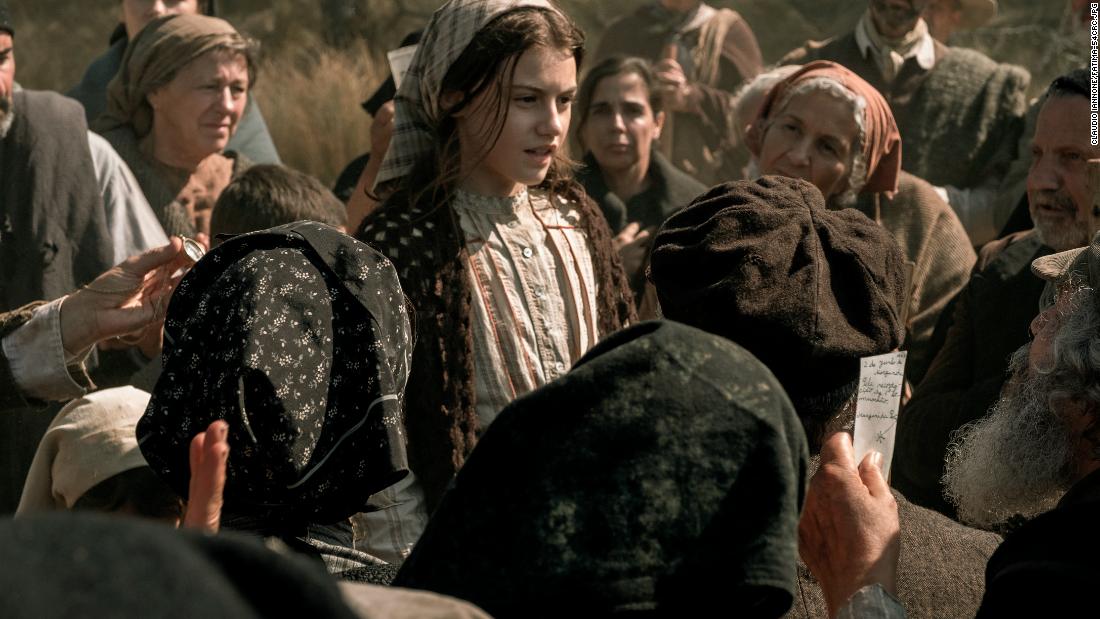
If that pandemic adds a timely coda to the story, so does the desperation for divine intervention and ageless questions of faith associated with it. The film also delivers a thoughtful if somewhat slow-moving take on the debate between religion and superstition, with local officials and clergy lining up at the time to label the visions of three young children as the latter.
The story unfolds via flashback, with an aged nun (Sonia Braga) discussing the experience from her youth with a skeptical professor (Harvey Keitel). The framing device doesn't add much, other than to reinforce that this story has resonated across the decades, becoming a pilgrimage site for Catholics as well as the movie "The Miracle of Our Lady of Fatima" in the 1950s.
The aforementioned nun was just a 10-year-old child, Lucia (Stephanie Gil), in 1917, living in a small Portuguese village. Along with her younger cousins (Alejandra Howard, Jorge Lamelas), she's visited by the Virgin Mary (Joana Ribeiro), who urges them to pray the rosary, promising to "bring peace to the world and to end the war."
The reported appearance of a sacred apparition not surprisingly ripples through the land -- where people periodically line up to learn whether their sons have died in battle -- and concerns Lucia's parents, played by Lucia Moniz ("Love, Actually") and Marco D'Almeida.
Directed by Italian cinematographer Marco Pontecorvo, the film is beautifully shot, and features a closing song by Andrea Bocelli. Yet "Fatima" (the name of the parish) shines foremost in the performance by Gil, who is utterly believable as the girl at the center of this storm. Wherever one stands in terms of belief, seeing her resist pressure to say she made the whole thing up plays like an inspiring act of courage.
The larger question is the extent to which the movie can straddle the line between a religious audience that's suspicious of "Hollywood" and those who might not be inclined to watch what they'll perceive as a religious fable.
The two coexisted more freely in the past -- see Cecil B. DeMille's biblical epics -- and producers Mark Burnett and Roma Downey have achieved more recent commercial successes on TV by catering to that audience. Still, barring rare exceptions like Mel Gibson's "The Passion of the Christ," with entertainment occupying more stratified baskets it's not always easy to broadly market a film that feels like a trip to Sunday school.
Setting those concerns aside, "Fatima" largely works as a drama, in part because it's so earnestly presented, and unexpectedly timely in dealing with loss. If that adds up to something less than a miracle, given the aforementioned challenges, it's not an inconsequential achievement.
"Fatima" premieres in theaters and on demand on Aug. 28. It's rated PG-13.
"movie" - Google News
August 27, 2020 at 09:00PM
https://ift.tt/2D2B4p5
'Fatima' represents a test for a different kind of faith-based movie - CNN
"movie" - Google News
https://ift.tt/35pMQUg
https://ift.tt/3fb7bBl
Bagikan Berita Ini














0 Response to "'Fatima' represents a test for a different kind of faith-based movie - CNN"
Post a Comment